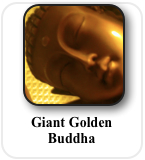|
May
1 "May
Day: Make It Rhyme on a Dime"
The aim of this exercise is to play with rhyme. Feel free to
make use of www.rhymer.com, or a rhyming dictionary
if you happen to have access to one. If you feel too silly to
do this exercise, then make one of your fictional characters
be an avid writer of doggerel. What little rhyming poem can you
come up with in five minutes?
May
2 "The
Morning After the Party"
Describe an apartment the morning after a party.
May
3 "Suitcase"
How does your character pack his or her suitcase? What's in it?
And what does the suitcase look like?
May
4 "Rain
of Rubber Chickens"
Fred pulled down the hatch to the attic; down came a rain
of rubber chickens. Write on.
May
5 "Five
Ingredients"
Write something—anything—that
includes the following five words/ phrases:
~urged
~When the servant entered with the soup
~show him the way
~zeal
~dead flies
May
6 "Five
Words"
We all know far more words than we actually use in our writing.
Today's exercise is inspired by poet Deborah
Ager's 5/5/06 entry in her blog, "32 Poems," "Create
What You Don't Know":
She wrote:
"The other night, I sat down to write. I took a glass of
water into my study —with its orange walls
glowing pink due to a sunset streaming through the western window—
and sat down at my desk. I'd recently RE-found my writing notebook
and was pleased to find some notes I'd taken on various poems.
I wasn't sure what I wanted to write. I decided to incorporate
five words I've never used before in a poem. To do this, I quickly
scanned the pages of a book I'm reading and came up with "true,"
"rice," "anecdote," "beam," and
"gentle."
What are five words you know but have never used in your writing?
Pick up whatever newspaper or book is handy and see what you
can find. You may need the whole five minutes just to find these
five words. That's OK.
May
7 "Elmer's
Tooth Fairy"
What did the tooth fairy bring? (Which tooth was it?) Then what
happens?
May
8 "Ten
Places, Ten Sounds"
For Proust, the scent of a madelein evoked an entire novel. In
this exercise, think "sounds." First, list ten places.
(Any places will do: your living room, the Tiki Room, whatever
pops into your head). After you have listed those ten places,
for each one, list the first sound that comes to mind. Once you
have all ten places and all ten sounds, circle the pair that
you find most intriguing, then start writing.
May
9 "Cliche
Conversation"
Using cliches is generally not a good idea, however, why not
have a character who uses cliches? Two characters are arguing
about where to go for dinner. One spews cliches. The other...
?
(If you need a few cliches, here's a little menu:
a fine kettle of fish
mad as a wet hen
a marriage made in heaven
beat around the bush
talk in circles
set your teeth on edge
uphill battle
go off half-cocked
hell in a handbasket
talk your ear off
kill two birds with one stone
a whole new ballgame
wet blanket
have your cake and eat it too
May
10 "Addicted
to TV"
The old saw in creative writing workshops is "show, don't
tell." So, without mentioning the words "TV" or
"addiction"— in other words, without
"telling," show with specific detail that your
character is addicted to TV.
May
11 "Cracked"
Something suddenly cracked. What was it? What happened?
May 12 "Dry
Leaves and Humbug"
Write something—anything—
that includes "dry leaves" and the word "humbug."
May
13 "Jacket
Lust"
Our clothing serves as a kind of mirror that shows us who we
are. It also serves as a potent signal to others about status
and values. Write this brief scene using dialogue: in the shopping
mall, Diane sees the jacket of her dreams; Frankie is repulsed.
May
14 "Barrel,
Mirror, Telephone"
In three sentences or less describe the barrel. In three sentences
or less describe the mirror. Where is the telephone? Describe
what happens.
May
15 "Breads"
Make a list of all the breads you can think of: Wonderbread,
bagels, pita bread, etc etc etc. Then, next to each one note
the color, the texture, the flavor, and the smell.
May
16 "Tough
Grandma"
This an exercise to help make a character more vivid. In what
ways is "Grandma" "tough?" Make a list; be
as specific as you can. Then, once you have finished, go back
and circle the three best items on that list.
May
17 "With
the Wedding Planner"
Betty's Mom, who has big ideas, meets with the wedding planner:
write the scene with (all or mostly) dialogue. Keep in mind that
the best dialogue usually shows character, mood, relationship
and/or conflict.
May
18 "The Character's
Car: Inside & Out"
Today's exercise is courtesy of Katherine
Min, a fiction writer who lives in New Hampshire.
Take one or two of the following characters and describe
in specific detail what their car would look like, inside and
out. Try to avoid stereotypes. The trick is to create a deep
sense of character by describing only
their car.
a) an unsuccessful painter
b) a rock musician who will soon get famous
c) a high school senior about to flunk out
d) a gym teacher with an attitude
e) a Christian fundamentalist who works at a Walmart
f) a nun
g) a businessman with a serious drug addiction
h) a gay but closeted construction worker
i) a yo-yo dieter
j) a paranoid schizophrenic
k) a cleaning woman who just won the lottery
l) a former Enron executive who has just been
sentenced to hard time
May
19 "A Body of Water"
Imagine a body of water. This might be a lake or a pond or a
rushing river— it can be anything. What do you see in your
mind? Describe this body of water in detail—detail that
addresses all of the senses. What colors do you see? Lights and
shadows? Sounds? Smells? Textures? How does it feel on your skin?
What is in it, near it, above it? In the remaining minute, jot
down the feelings this body of water evokes—either in you
or in a character.
May
20 "Not Enough"
The Tao Te Ching says, "To know you have enough is to be
rich." What does your character not have enough of? Make
a list.
May
21 "Red, Yellow,
Blue & More"
This exercise is to strengthen your ability to visualize colors
and objects. Name a red object, for example, "red wagon"
or "a cherry." Name a yellow object. Name a blue object.
Go through all the following colors: lavender, orange, pink,
brown, black, white, turquoise, silver, gold, purple, orange,
raspberry, magenta, green, and then add at least three more colors
of three more objects.
May
22 "Time Elasticity"
List 10 situations / activities that make time go slow (e.g.,
sitting in a dentist's chair). Then list 10 situations / activities
that make time speed up. Once you have your lists, go back and
circle the slowest and the fastest. See if sometime today or
soon you can use these in your writing.
May
23 "Foyer"
Make a brief list of adjectives and nouns to describe each the
following foyers:
~of an elderly society lady;
~of a college football player;
~of a convention center;
~of a funky city bookstore specializing in poetry;
~of a model condominium unit being marketed to hip yuppies.
Here's an example:
~foyer of a young painter:
bright; yellow paint splashes; shiny; inflatable cherry red rhinocerous;
dirty old tennis shoes; dog's tennis ball; smell of turpentine
May
24 "Chocolate Cake"
Do this exercise either for yourself or for a character: What
memories does "chocolate cake" evoke?
May
25 "Wobbly"
Make a list of things that are wobbly.
May
26 "After"
Write the first few sentences of a story that begins thus:
After she lost 300 pounds,
May
27 "Before"
Write the first few sentences of a story that beguns thus:
Before he gained 200 pounds,
May
28 "First House"
Your first house (or apartment): what do you remember about?
Feel free to do this exercise either for yourself or for a fictional
character.)
May
29 "Accidents"
What is the worst accident you have ever had? The most recent?
The silliest? The srangest? The most painful? The most embarrassing?
(This can be done for yourself or for a fictional character.)
May
30 "Doris &
Ted"
Doris just got fired because, as the manager, Ted, told everyone
else in the restaurant, she is the world's most incompetent waitress.
Ted now tries to convince Doris that it's really for the best.
Write the scene in dialogue. (Hint: the most effective dialogue
usually shows character, mood, relationship and/or conflict.)
May
31 "What's On Your
Desk?"
What is on your desk? Be as specific as possible. Really push,
making as list of even the things you do not have a word for
(check out a visual dictionary if you can). |

 >| June
>| June